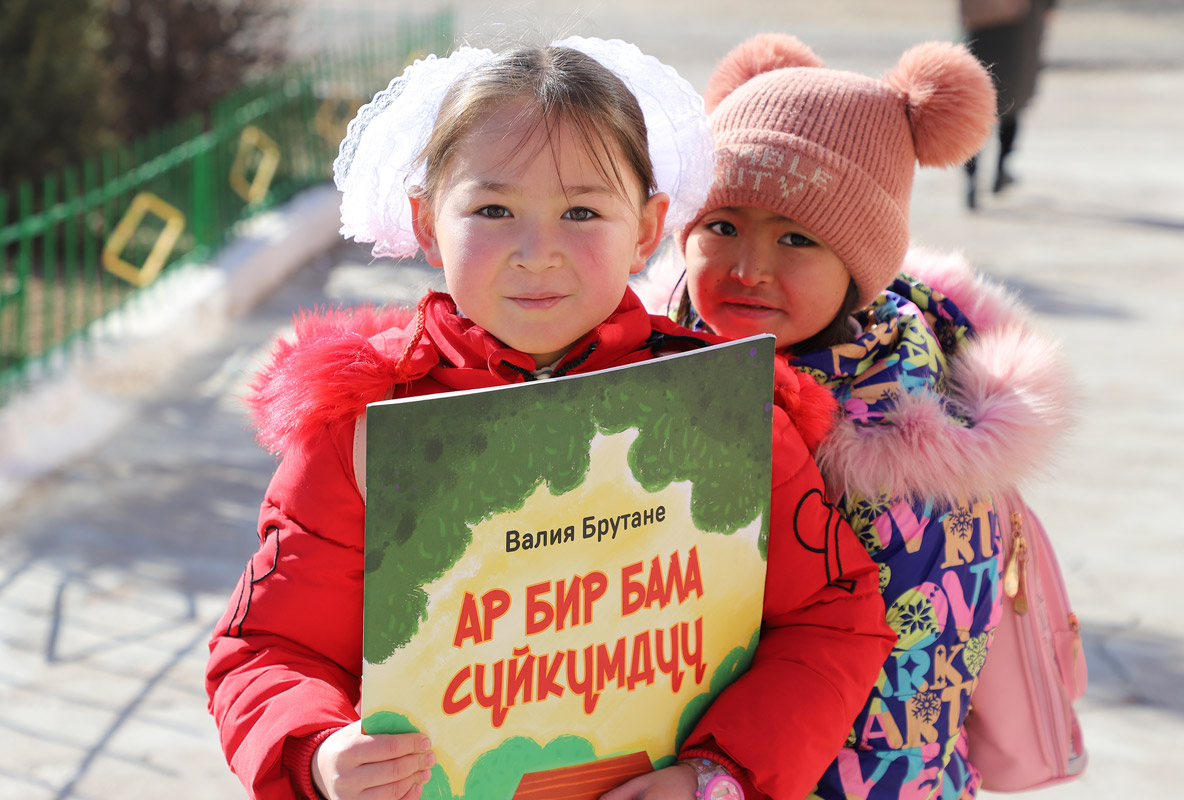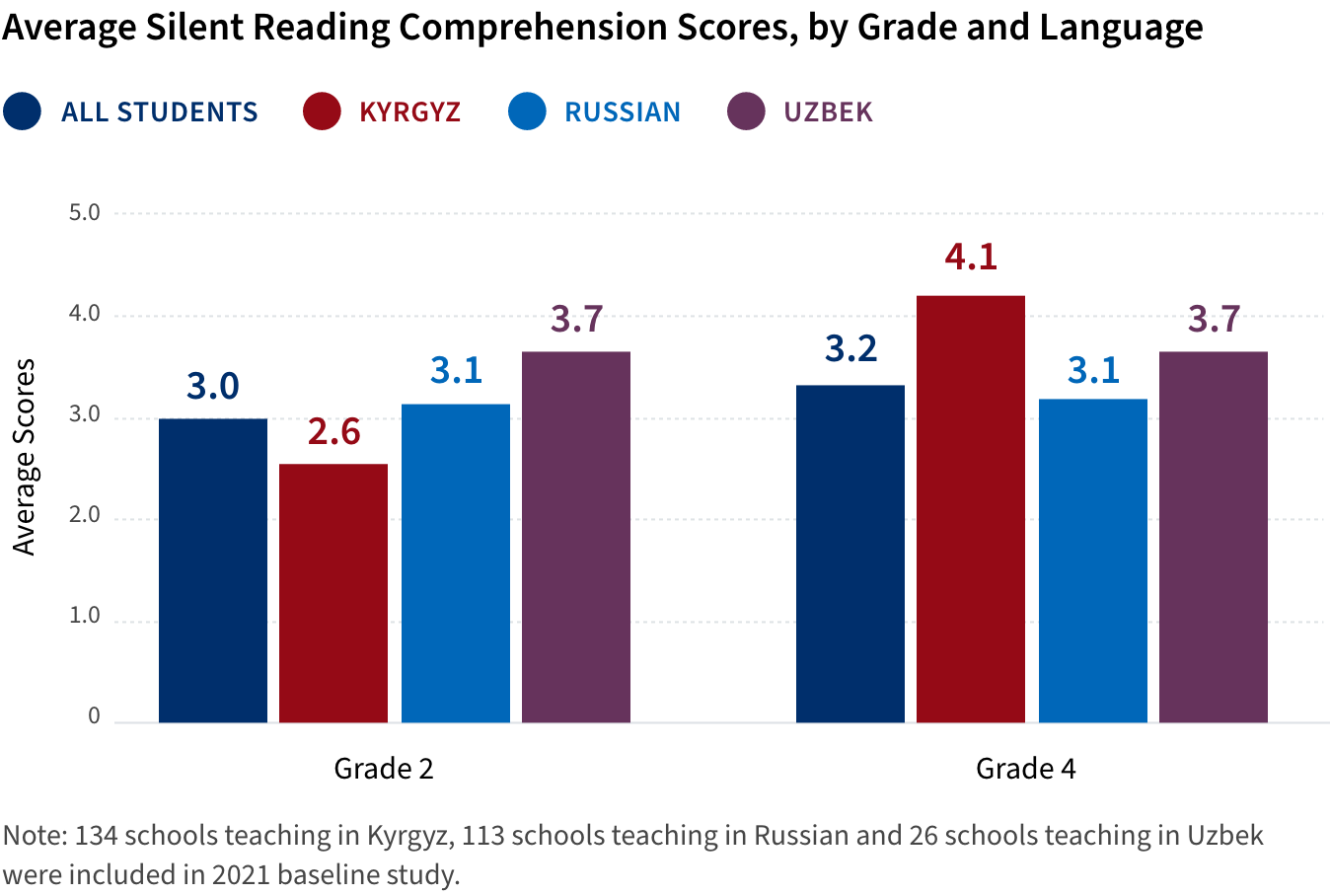In partnership with Kyrgyz Republic’s Ministry of Education and Science and local stakeholders, USAID’s Okuu Keremet! (“Learning is Awesome!”) project is improving learning outcomes in reading and math for students in grades 1-4 in the Kyrgyz Republic. The 5-year project (2019-2024) aims to:
- improve the quality of reading and math instruction in the primary grades;
- provide quality learning materials and activities, in and out of school; and
- strengthen the quality of system support provided to primary schools.
In order to evaluate the reading program, a baseline Early Grade Reading Assessment (EGRA) was conducted in spring of 2021. Overall, more than 5,000 grade 2 and grade 4 students from 276 schools participated in the assessment. The assessment was conducted in four languages (Kyrgyz, Russian, Uzbek, and Tajik); however, only results from three are included on the EGR Barometer (Tajik not included due to a small sample size). The baseline EGRA serves as a nationally representative assessment of primary grade student achievement.





